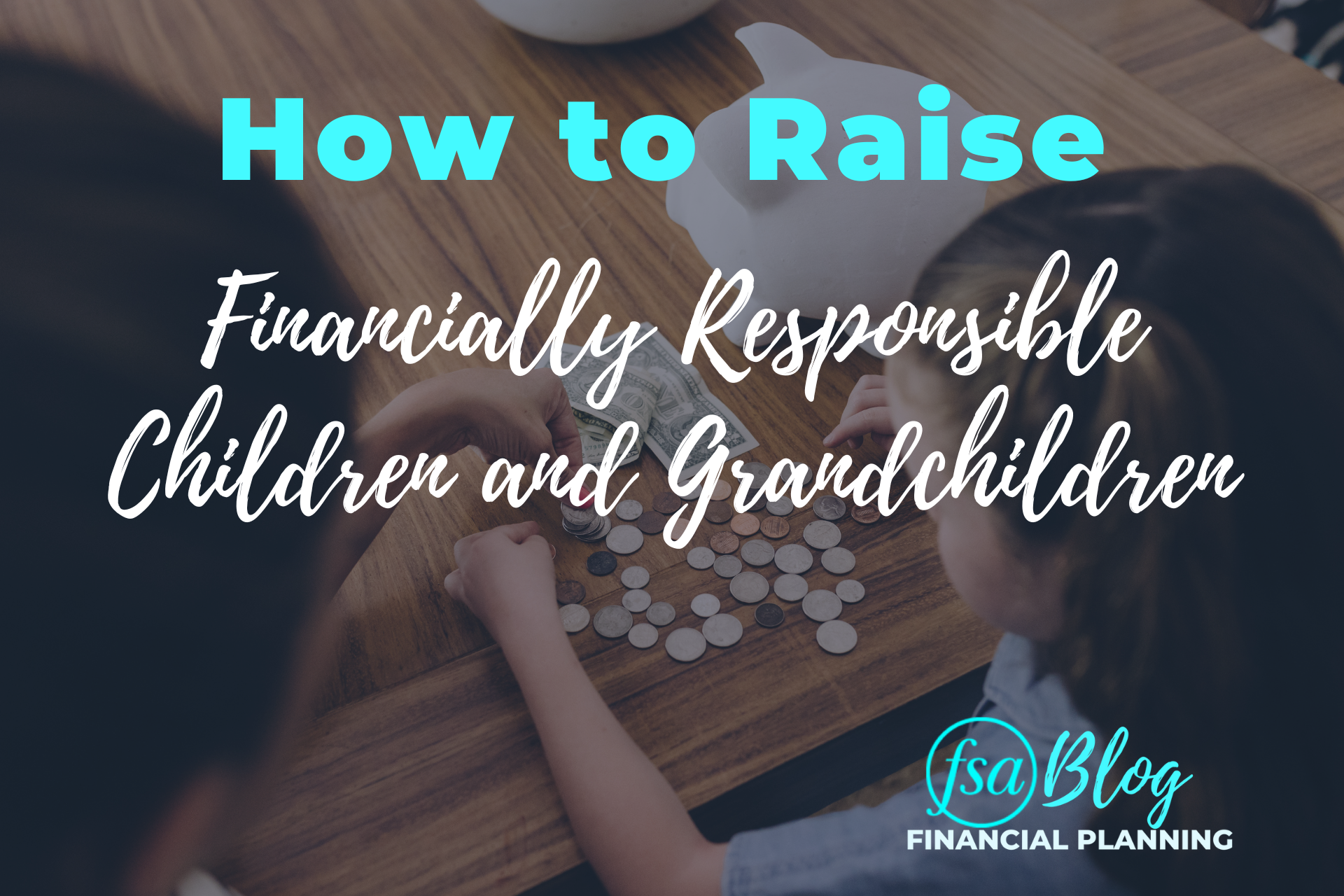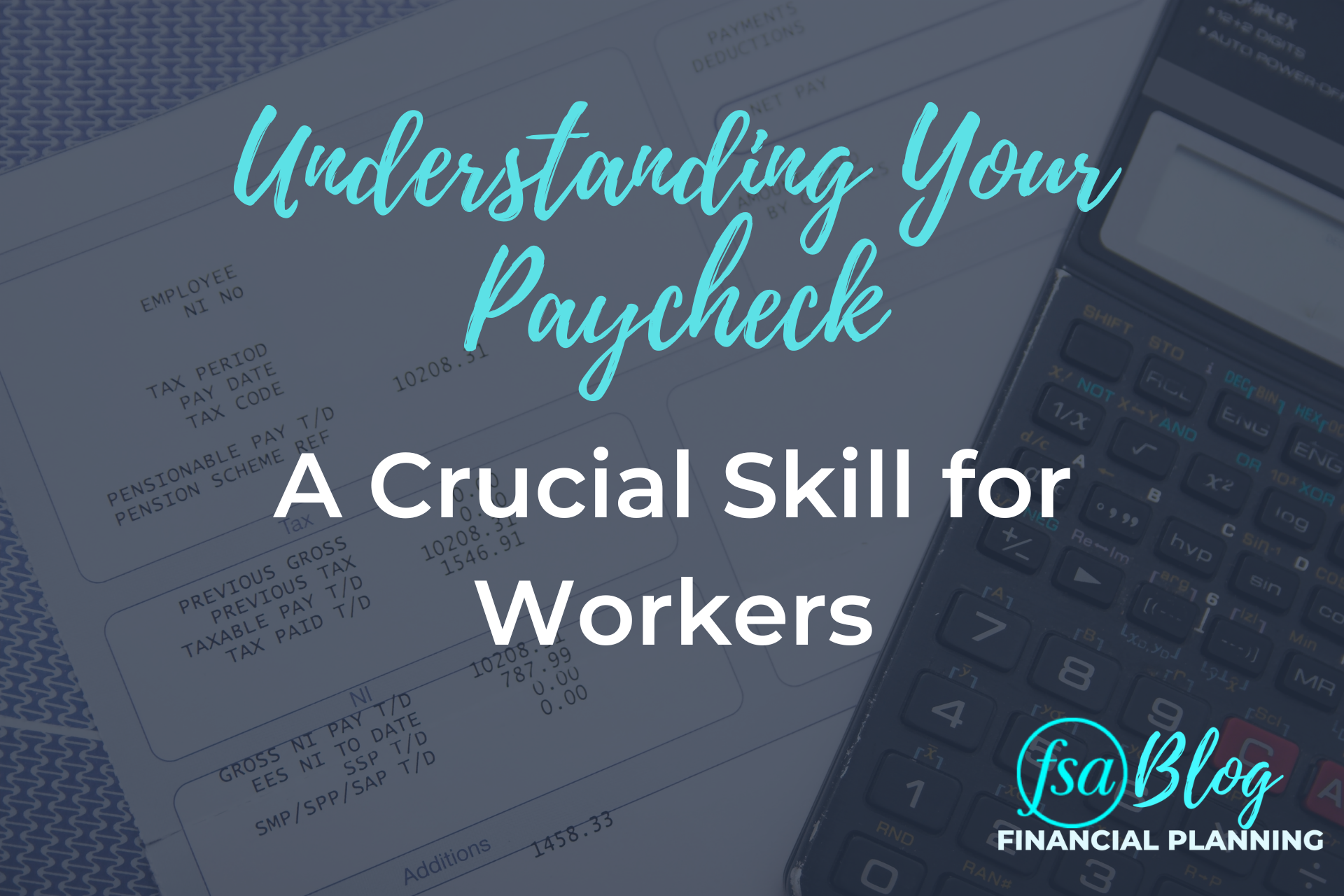The Vanderbilts, The Gettys, and the DuPonts were among the wealthiest families at the turn of the 20th century. Today, you will not see these names among the top billionaires on the planet. Sadly, wealth typically tends to lag about three generations before it wanes. This is usually due to a lack of financial savviness passed down from the creator of the family wealth to the children and grandchildren. Typically, the heirs receive an inheritance with little to no education on how to properly manage such responsibility and power.
Leaving a legacy is more than just passing down dollar bills. It is also about sharing the personal finance principles and lessons learned along the journey of building wealth. Passing this knowledge down helps the further accumulation, growth, and maintenance of your legacy for generations. Here are five ways that you can raise financially responsible children and grandchildren to put them on a path to sustained prosperity.
Teach the Fundamentals of Money
The average student will not be taught about household economics until they are in high school or even college. In some cases, a student will receive no financial education whatsoever. Therefore, you will want to teach your child or grandchild how much money it takes to purchase certain items and how money is earned. The earlier a child understands the value of a dollar today versus tomorrow, the faster they can gain respect for it. Teaching them about the principles of deferred gratification early on is crucial. To do this, set up incentives for them to save their money versus spend it. For every dollar they save, you could give them a matching contribution to encourage the behavior. They’ll learn that the more money they save now, the more coins in their piggy bank they’ll have later.
Encourage Entrepreneurism
On top of having a solid base knowledge of money, building an entrepreneurial mindset can open many opportunities even at a young age. It’s a good idea for a child to learn how to make money in real life early on. This could be through a side hustle or part-time job even if they don’t really need the extra cash. Mowing lawns, shoveling snow, bussing, or waiting tables will teach them the basics of business and personal finance such as cash flow, marketing, customer service, revenue, profits, and savings.
One true example is Dave Petersen’s (founding partner of FSA) grandson, who bought a moon bounce house and started renting it out for local birthday parties. His grandson was faced with decisions such as for how long should he rent out the house, how much should he charge per hour, and does it make sense to buy more houses. On top of earning money, he is learning how to critically think and make difficult decisions at a young age. An added extra benefit is that with earned income, you can open a custodial Roth IRA to get them started investing tax-free for their future.
Educate Them on the Stock Market
The stock market is one of the best wealth-creation tools. Therefore, the earlier kids start learning about having their money work for them, the better off they’ll be in the long run (especially if they will eventually receive an inheritance). However, kids should also learn that the stock market should not be treated as a casino. The last thing you need is a teenager losing significant amounts of money in a Robinhood account because they’re dedicated to putting their life savings in out-of-the-money AMC calls.
It is easiest to learn about the stock market by participating in it (in a responsible way). You could open a custodial brokerage account or Roth IRA (assuming they have income) and help them choose the investments in their account. You can talk about index funds or help them choose individual stocks. We find getting them invested in companies they use regularly can be the trick to get them excited about investing. If they are always on their iPhone or iPad, invest in Apple. If they like Marvel movies, invest in Disney. If they love a burrito bowl, invest in Chipotle. You get the point. If you prefer index funds, you can still let them know they own a portion of their favorite companies through the index.
Emphasize The Power of Compounding
One of the most critical money lessons you can teach at a young age is the power of compounding. Explain to the child or grandchild that the more time money has to compound in the markets, the greater the exponential effect. The financial site Nerd Wallet offers a great example of the power of long-term compounding. Here is a look at how much you can accumulate if you save $250 a month and put it to work in an S&P 500 index:
- If you start at 25: you’ll accumulate $878,570 by age 65
- If you start at 35: you’ll accumulate $375,073 by age 65
- If you start at 45: you’ll accumulate $148,236 by age 65
If time is on your side, it does not take a lot of money to grow generational wealth. Imagine what the numbers would be if you saved $500 or $1,000 a month.
Explain the Difference Between Acting Rich and Being Wealthy
Finally, you should teach your children and grandchildren that outward displays of money does not always equal actual wealth. Explain that some people with limited funds will go into debt to try to look rich. Anyone can afford a nice car or the latest Apple gadgets with ever expanding car loan terms and credit card debt.
Explain that many millionaires, in fact, do not drive a Ferrari or Rolls Royce. A great book for high school or college aged kids to read is The Millionaire Next Door by Thomas J. Stanley or The Next Millionaire Next Door by Thomas J. Stanley and his daughter, Sarah Stanley Fallaw. The books are famous for revealing that the average millionaire drives a 10-year-old car and lives in a middle-class neighborhood, even though they have more than a million dollars in the bank. They call this stealth wealth. Wealth is less about flash and more about hard work and disciplined habits.
Bottom Line: Sustaining Generational Wealth Starts with Early Education
With the right financial education, any child can be set on the right path to wealth. This can not only preserve your legacy, but it can also help your child or grandchild build a legacy of their own for future generations of your bloodline. Need help with educating your young ones? FSA is also willing to jump on the phone and walk through the basics with them. You can click here for a free NexGen consultation with an FSA advisor.
FSA’s current written Disclosure Brochure and Privacy Notice discussing our current advisory services and fees is also available at https://fsainvest.com/disclosures/ or by calling 301-949-7300.




